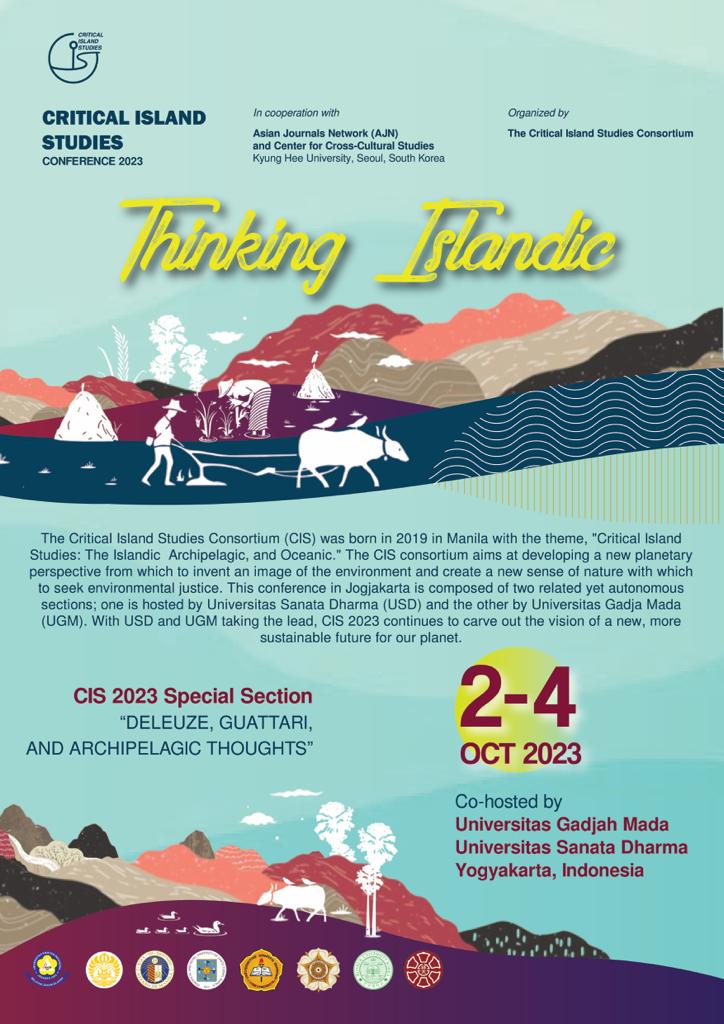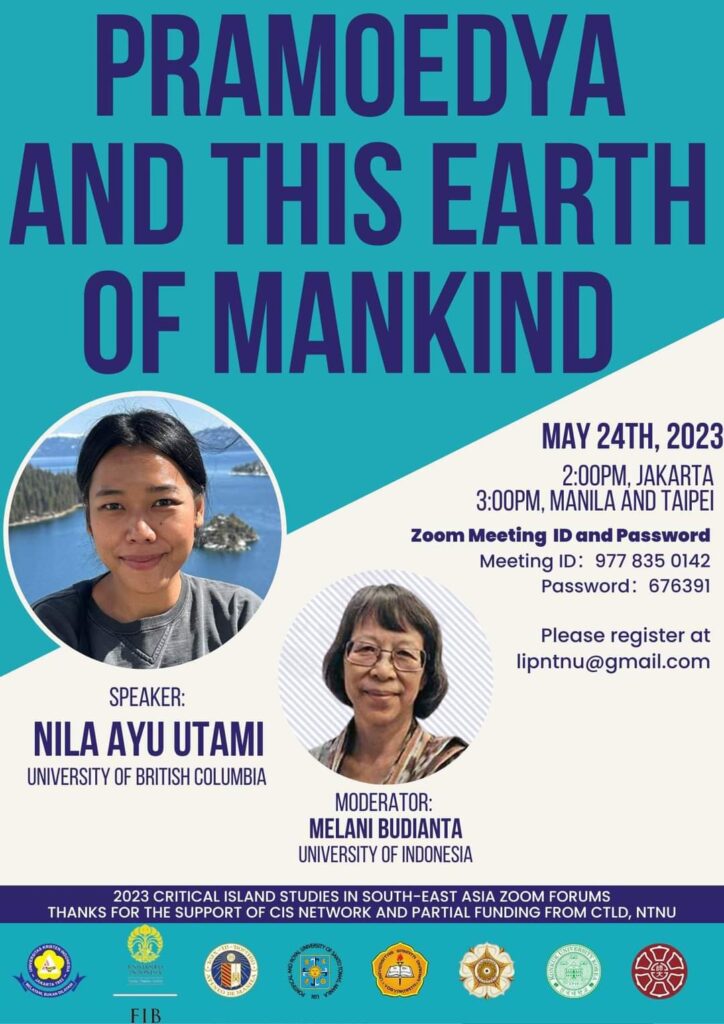CRITICAL ISLAND STUDIES 2023

THINKING ISLANDIC
The Critical Island Studies Consortium (CIS) was born in 2019 in Manila with the theme, “Critical Island Studies: The Islandic Archipelago, and Oceanic.” The CIS consortium aims at developing a new planetary perspective from which to invent an image of the environment and create a new sense of nature with which to seek environmental justice and address other planetary concerns. This conference in Yogyakarta is composed of two related yet autonomous parts. Part one is hosted by Universitas Gadjah Mada (UGM) and part two is hosted by Universitas Sanata Dharma (USD). The 2023 CIS Conference also features a special section, “Deleuze, Guattari, and Archipelagic Thoughts.” With USD and UGM taking the lead, CIS 2023 continues to carve out the vision of a new, more sustainable future for our planet.
Universitas Sanata Dharma and Universitas Gadjah Mada, two of the leading universities in the consortium today, have joined efforts to host this year’s conference in which internationally renowned scholars, researchers, and academics have come on board to deliver plenary lectures on topics that are as relevant today as they are for the planet’s future. The positive responses to the distinct but related Call for Papers which have been sent out have brought us all together in this two-part CIS 2023 conference.
Critical Island Studies 2023: Our Urgent Task
Discussions about globalization generally focus on the expansion of the “center” — Europe and North America — across the globe, often undertaken at the expense of the “margin” — other regions and the rest of the world. However, this conventional practice is problematic because it ignores the reality of the interconnectedness of the global system. To create a new understanding of the environment and nature that acknowledges such interconnectedness, we must move away from this Eurocentric view and develop a more planetary perspective. This shift is necessary to address the urgent challenges of social and environmental crises requiring the imagination and creation of a new, more sustainable future for our planet. Toward this end, archipelagic thinking might offer an alternative to the dominant Eurocentric cosmology of nature, focusing on the oceans and islands rather than lands and continents.
For this reason, a planetary perspective of the world is necessary to invent another image of the environment and create a new sense of nature characterized by a change of empirical norms for new perceptions. The task of this new scholarship is the production of a critique of the Eurocentric cosmology of nature which has mostly sustained its geopolitical privilege over other places, propped up by the epistemology of landscape. Against this mainstream imaginary of nature, an alternative philosophy of environment must be created, e.g., the seascape ontology which involves a paradigm shift from land to ocean, continents to islands, called Critical Island Studies (CIS).
It is this spirit that binds Critical Island Studies, a consortium of universities that are commited to the critical examination of a whole range of phenomena from empires and neo/postcoloniality to biodiversity and linguistic/cultural heterogeneity, and from strategic parochialism to alternative cosmopolitanism, and other phenomena. As a transdisciplinary enterprise, it involves philosophers, literary writers and critics, ecologists, development studies scholars, social and natural scientists, area studies specialists, cultural workers, geographers working on issues relating to the islandic, the archipelagic, and the oceanic and their signification as concepts as well as their ideological and hegemonic implication.
This archipelagic paradigm shift from land to sea in undertaking CIS could have a significant impact on literary and cultural studies, in particular, and interdisciplinary humanities, in general. One potential effect could be a renewed interest in Maritime Literature, including both non-fiction works about the sea and fictional works set in a maritime environment. This could lead to a greater focus on themes such as exploration, adventure, and the relationship between humanity and the natural world. In addition, a shift from land to sea could also influence the ways in which literary scholars approach and interpret particular works, e.g., certain works that were previously seen as primarily terrestrial in nature might be reinterpreted in light of a maritime perspective, potentially leading to new insights and interpretations. Overall, the epistemological shift from land to sea could lead to a broader and more inclusive approach to the study of literature — one that considers the rich and varied experiences of those who have lived and worked on or near the sea, lake, bay, inlet, river or ocean.
These posters refer to the lecture series conducted online by Critical Island Studies Consortium in 2023.






